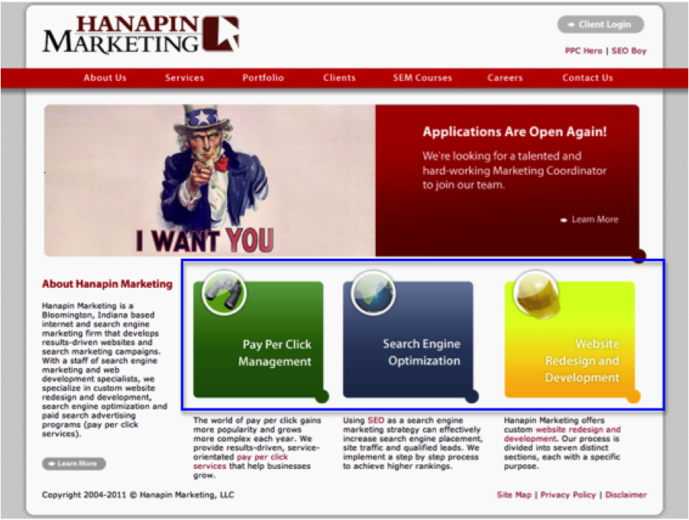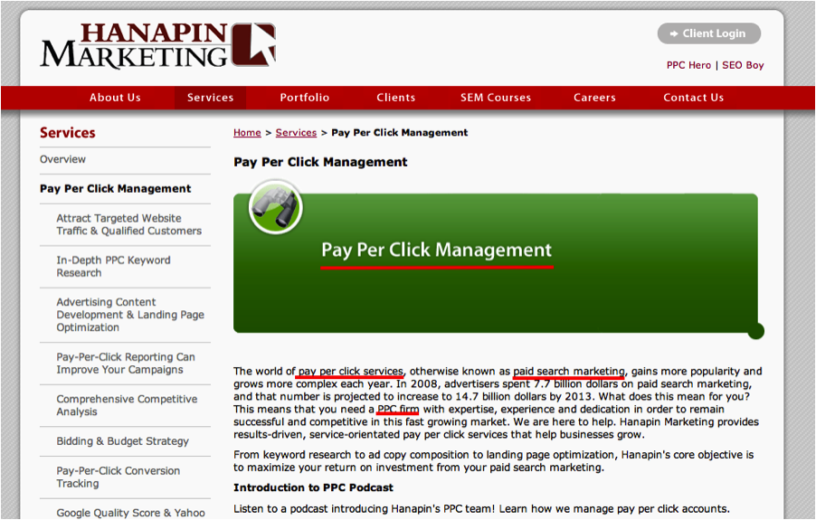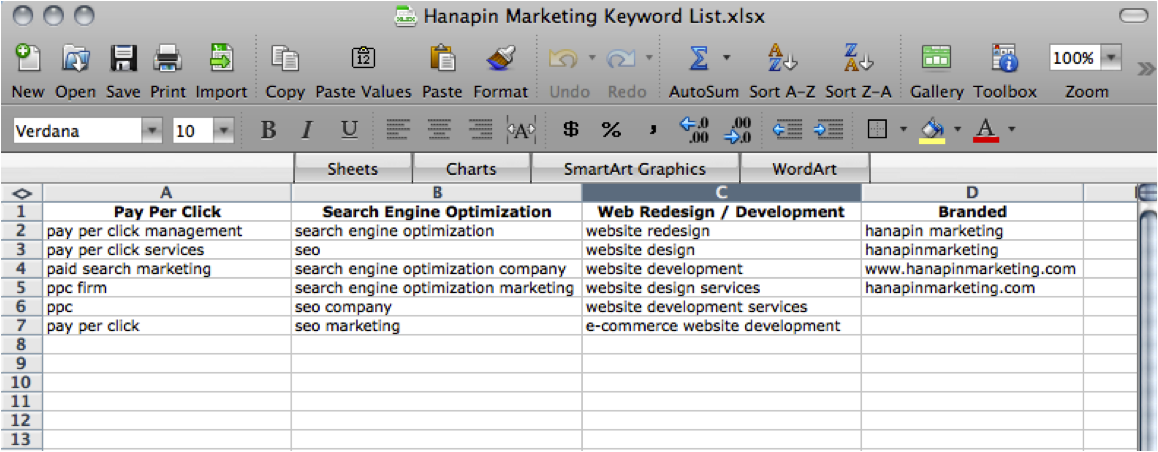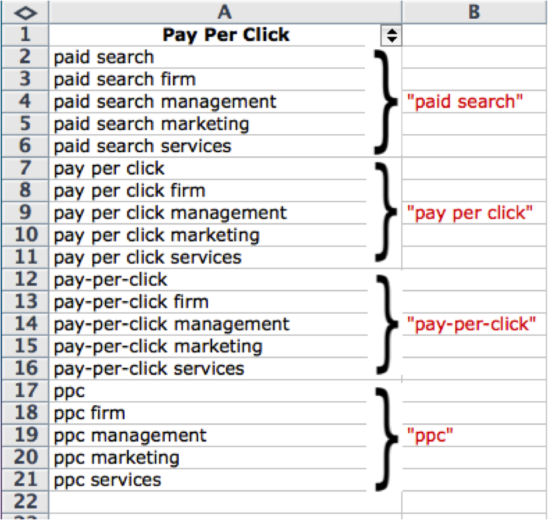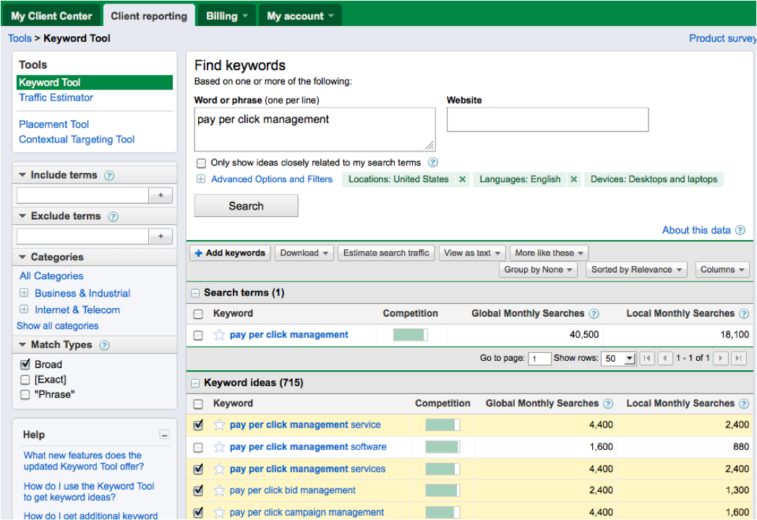This is part 1 of our week-long series on starting an AdWords account from scratch. The series will walk you though each step of the process, from creating your initial keyword list to activating your campaigns. Give us 5 days and we’ll teach you how to start you very own AdWords account!
You’ve heard of the three little PPC pigs right? The first PPC pig started building his account without conducting any keyword search because it was the easiest thing to do. The second PPC pig created a list of generic keywords which made his account a little stronger than the first. But the third PPC pig spent time looking at his website, expanding upon relevant keyword variations, understanding his customer, and utilizing keyword research tools which made his PPC account was the strongest of all…
Ok so maybe that’s not exactly how the story goes, but keyword research is the foundation on which you build your PPC account. The stronger the keyword list, the stronger your account will be and the less likely you are to get eaten by the big bad high CPL wolf.
This post will walk you through the steps of setting up your initial PPC keyword list using our company, Hanapin Marketing, as an example. I’ll also provide some quick tips for keyword list creation at the end.
Start With The Company Website
The first place you should start looking for keywords is the company website. This is the best way to identify the core words and phrases that describe your business. Looking at the website layout will also help you see any keyword themes that may be present. Let’s take a look at website for Hanapin Marketing.
Right away you can see the three categories of services we offer:
- Pay Per Click Management
- Search Engine Optimization
- Website Redesign and Development
To help keep myself organized, I like to group my keywords by theme, in this case types of services offered, instead of just creating one long keyword list. Next, I’m going to click through to each individual service page and write down every relevant keyword I find on the site for each category. Here’s an example of some of the keywords I identified for Pay Per Click (click to enlarge):
As you are going through your site, don’t forget to include branded terms when developing your keyword list. Branded keywords are extremely beneficial to any PPC account as they tend to have higher conversion rates and lower cost per conversions. Below are the list of keywords I put into my excel spreadsheet from the website.
As we move through the rest of this example, I’m only going to focus on building out the keyword list for the Pay Per Click terms.
Include Synonyms and Keyword Variations
After you’ve pulled keywords from your website, look at your list and see if you can think of any synonyms or variations of those keywords. For example, pay per click is also known as paid search, so I’m going to substitute “paid search” for “pay per click” in my keyword list. Pay per click also has other variations. It is commonly abbreviated as “ppc” or is written to include hyphens “pay-per-click.” I want to target these keywords as well so I am going to substitute the variations in for the original keyword.
Think Like Your Customer
Now that you’ve spent time looking at the company website and thinking of other keyword variations, take a step back and put yourself in the customer’s shoes. What would someone who’s looking for your product or service type into the search engines?
Hanapin is targeting people who need management for their PPC accounts. However, if the person searching is inexperienced in the industry they might not use the term “pay per click” or “paid search”. They may search on more generic terms like “online advertising” or “internet marketing”. Just because you are knowledgeable of industry terms doesn’t mean your customers are.
Also think about the intent of your customer. If a person is looking for help with managing their account it’s likely that their current account is not doing well and they want to improve performance. Because of that “improve ppc account performance” is a longer-tail keyword we could also target.
Keyword Research Tools
Now that you’ve spent time brainstorming, enter these keywords into a keyword research tool to uncover more terms that fit your business. There are many great keyword tools out there, both free and paid, that will help you expand your PPC keyword list. I’m going to use the AdWords keyword tool since it’s free and one I use often, though I do recommend using a variety keyword tools to get different perspectives.
All you have to do is enter in a keyword and hit search, and Google will generate a list of related keyword ideas.
Go through the list and check the ones you think would fit into your account. You can see here I’ve selected four of the first five words, but left pay per click management software unchecked since we don’t offer that service. Once you’ve selected your keywords you can download them into an excel file and add them to your original keyword list. Below are some of the additional keywords I found using the keyword tool.
Notice that I’ve also expanded these new keywords to the other pay per click variations identified earlier. I’ve also broken down my original pay per click list into sub categories. I try to keep myself as organized as possible when creating keyword lists because it will make setting up your AdWords account a much easier process.
Tips For PPC Keyword List Creation
Here are 3 tips for creating your initial PPC keyword list:
- Start small. Once you start researching keywords it’s very easy to create a list of thousands upon thousands of keywords. It’s important to focus on the quality of keywords rather than the quantity. The best keywords are the ones that are relevant to your products or services and accurately reflect the content of your website. I recommend starting your PPC account with an initial list of a couple hundred keywords. Let these keywords run and then see where your PPC account has opportunities for growth.
- Don’t be too general. General keywords are going to have a lot of competition, which means a higher cost-per-click. For example, even though PPC is a form of advertising I wouldn’t bid on the keyword “advertising”. Unless you have a large PPC budget, stay away from very general keywords and focus on more specific keywords that better describe what you offer.
- Don’t be too specific. Although specific keywords tend to perform better than general keywords, being too specific can limit your ad exposure if very few people are searching for it. For example, I wouldn’t include “companies that can improve my ppc performance” but instead just include “improve ppc performance” which will pick up traffic from those longer-tail search queries.
Keyword research is an on-going process, but starting off with a strong list of initial keywords will start you on the path to PPC success. Be sure to come back tomorrow to learn about setting up your first PPC campaign!



